Bashar Assad sends troops to help Kurds confront Turkey
As all US troops withdraw, Syrian soldiers have begun moving to the border to confront Turkish forces, sparking fears of a wider confrontation.
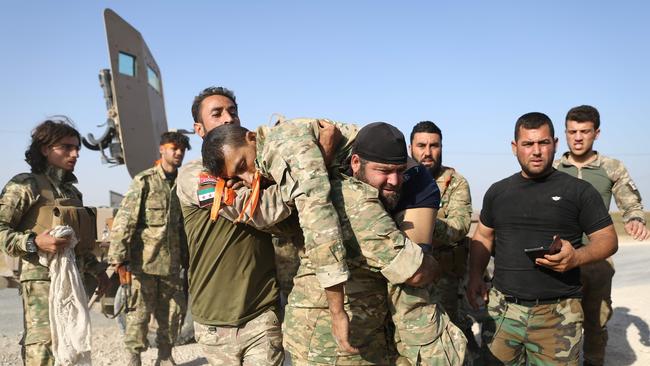
Syrian regime troops are moving to the border to confront Turkish troops after the Kurds agreed to a Russian brokered deal to allow Bashar al-Assad’s soldiers into their territory.
The regime forces are expected to move into the towns of Manbij and Kobani, to prevent a humanitarian catastrophe if Turkey claimed the towns.
MORE: Jason Thomas writes neither the UN nor EU are rushing to fill the ‘void’ left by US troops in Syria
The deal. agreed after the US announced the withdrawal of all its troops from north Syria, has sparked fears of a wider confrontation pitting the Syrian regime and its Russian backers directly against Turkey. The UK and other western powers are likely to follow the US withdrawal, the London Times reports.
“If we have to choose between compromises and the genocide of our people, we will surely choose life for our people,” said Mazloum Kobani Abdi, the commander of the SDF.
An SDF official said of the US withdrawal: “The betrayal process is officially completed.”
Over the weekend, dozens were killed in air strikes and roadside executions, and ISIS terrorists fled prisons, adding to concerns of a resurgence of the terror group.
US Secretary of Defence Mark Esper described the increasingly chaotic situation on the ground as “very untenable’’ as he announced the US would withdraw its 1,000 troops from Northern Syria.
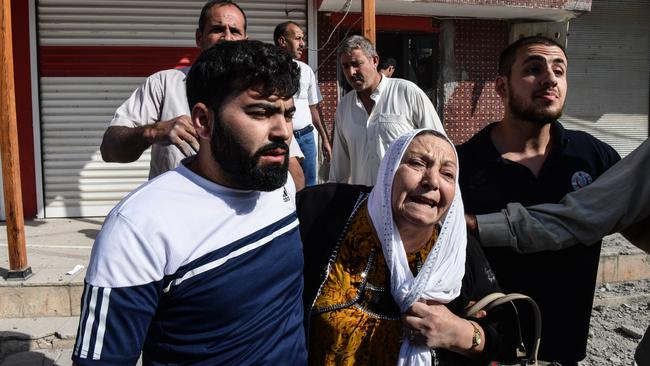
The move means US military was unable to transfer 60 “high value” ISIS terrorists out of Kurdish run prisons, according to the New York Times. Nearly 800 foreign jihadis and their families have already escaped from the Kurdish protected Ain Issa camp after shelling by the Turkish army. By Sunday afternoon the camp was fully evacuated, local media reported.
Foreign journalists were among dozens killed and injured in a Turkish air strike on a convoy near Res al-Ain in Northern Syria on Sunday, while a prominent Kurd politician was pulled out of her car and executed on Saturday.
At least 26 civilians were killed in the convoy attack according to the Syrian Observatory for Human Rights, including at least 10 people killed in the journalists’ convoy which was travelling with civilians and armed guards from Jazira to Res al-Ain.
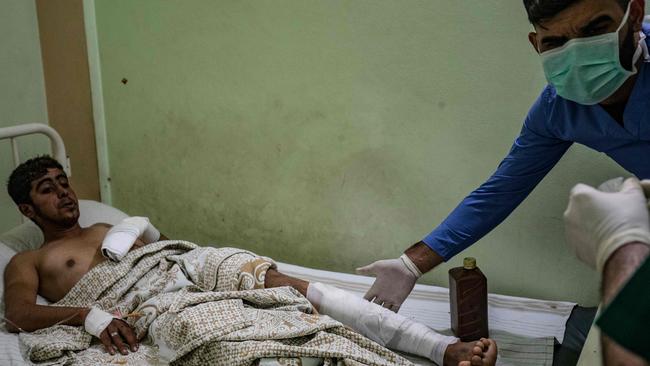
“In the last 24 hours, we learned that [the Turks] likely intend to extend their attack further south than originally planned, and to the west,” Mr Esper said in an interview with CBS.
“We also have learned in the last 24 hours … the (Kurdish led) SDF are looking to cut a deal, if you will, with the Syrian government and the Russians to counter-attack against the Turks in the north.”’
He added: “It’s a very untenable situation. I spoke with the President last night, after discussions with the rest of the national security team and he directed that we begin a deliberate withdrawal of forces from northern Syria … Which is where most of our forces are.”
Gruesome footage from the convoy attack shows the dead and severely injured sprawled on a near deserted street amidst scattered television equipment and military weapons. Scores of people who arrived at the nearby Tal Tamr Hospital were seriously injured.
France 2 television journalist Stephanie Perez wrote on Twitter that she was travelling in the convoy that was hit. “Our team is safe but colleagues have died,” Ms Perez wrote.
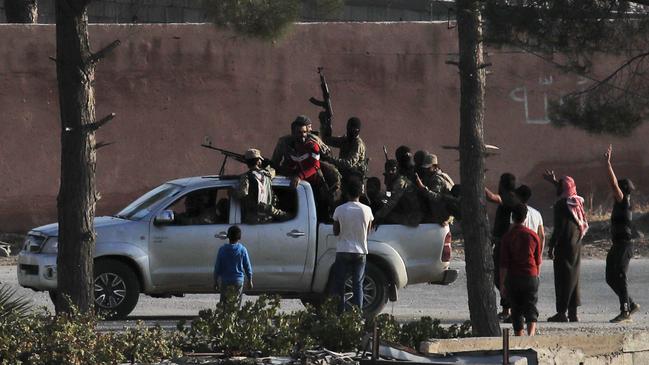
The Kurdish news agency Hawar confirmed one of its journalists Saad Ehmed was killed in the air strike.
The deaths have raised the death toll to more than 60 civilians, killed since Turkey began its border assault on Wednesday.
The toll includes nine civilians, including the co chair of the Future Syria Party, Hevrin Khalaf and her driver, who were executed by the side of the road south of Tal Abyad on the main route to Qamishlo on Saturday.
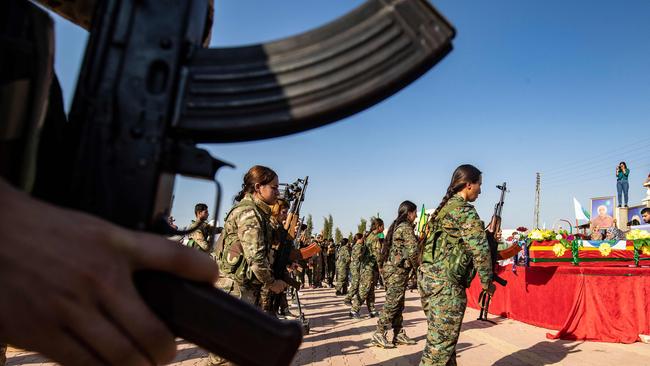
There have been competing claims whether those involved were pro-Turkish militants or an Islamic State sleeper cell.
The Kurdish-led Syrian Democratic Forces (SDF) said Khalaf was “taken out of her car during a Turkish-backed attack and executed by Turkish-backed mercenary factions”.
At the same time there were grave concerns about four medical staff from the Kurdish Red Crescent who were kidnapped on the same road while heading Tal Abyad to treat the wounded.
Late Sunday there were reports Turkey had taken control of Syria’s M4 highway and disrupted an essential supply line of the Kurds.
In a phone call on Saturday evening British Prime Minister Boris Johnson expressed “grave concern” to Turkish President Tayyip Erdogan, saying the offensive might worsen the humanitarian situation and undermine progress against Islamic State. Mr Johnson called for a ceasefire. German chancellor Angela Merkel expressed the same sentiment in a phone call on Sunday after halting some arms sales to Turkey.
But Mr Erdogan told a televised address on Sunday afternoon: “After we launched our operation, we have faced threats like economic sanctions and embargoes on weapons sales. Those who think they can make Turkey turn back with these threats are gravely mistaken’’.
Turkey views the Kurdish militia, the YPG, as a terrorist organisation and wants to clear a 30km deep border to create a border buffer zone between Turkey and the Kurds, and repopulate that zone with around two million of the 3.6m Syrian refugees currently in Turkey.




To join the conversation, please log in. Don't have an account? Register
Join the conversation, you are commenting as Logout